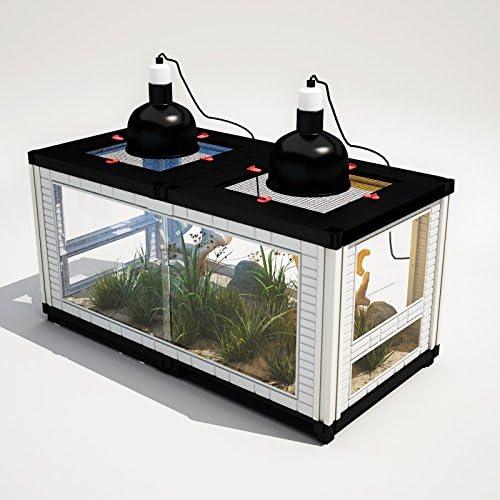Why Proper Packaging Matters for Reptile Supplies

Shipping reptile supplies is more than boxing up products and handing them off to a carrier. It’s about ensuring the health, safety, and quality of temperature-sensitive, delicate, or even live items. In the reptile industry, where shipments often include live insects, frozen feeders, and fragile enclosures, proper packaging can be the difference between a satisfied customer and a shipment gone wrong.
Whether you're shipping across the state or across the country, packaging plays a crucial role in maintaining the condition of reptile supplies. Without proper materials and techniques, even the best products can arrive damaged, spoiled, or unusable costing businesses time, money, and trust.
What Can Go Wrong Without the Right Packaging?
Shipping reptile supplies requires greater care and preparation than standard logistics. Because these items often include live animals or delicate gear, poor packaging can quickly lead to damaged goods and unhappy customers. Common challenges include temperature control, adequate ventilation, and ensuring all materials meet legal shipping guidelines.
-
Temperature damage: Products like frozen feeders or heating pads can become useless without proper thermal control.
-
Physical damage: Glass enclosures, ceramic heaters, and lighting equipment are prone to breakage.
-
Contamination: Insects or frozen goods that aren't sealed can leak or spoil other items in the package.
-
Non-compliance: Regulatory guidelines must be followed when shipping live or temperature-sensitive items.
To avoid these problems, businesses turn to reptile shipping services and supply specialized solutions designed to handle the unique needs of reptile products safely and efficiently.
Must-Have Packaging Materials for Safe Reptile Shipping
Reliable shipping reptile supplies should include essentials like:
-
Corrugated boxes for strong, stackable protection
-
Insulated liners or boxes to maintain temperature
-
Heat/cold packs for climate-sensitive cargo
-
Ventilated containers for live insects or animals
-
Shock-absorbing fillers like foam, paper, or bubble wrap
Choosing the right combination of packaging materials is key to ensuring shipments arrive intact and on schedule. Frozen rodents, for instance, require cold packs and insulation, while fragile bulbs need sturdy containers and ample padding. That’s where reptile shipping services supplies come in, specifically tailored to handle these unique demands with reliability and care.
Weather, Distance & Packaging Strategy
Cross-country deliveries often expose shipments to fluctuating climates from desert heat to freezing northern temperatures. When shipping reptile supplies, planning for these environmental shifts is essential. Carriers might not guarantee climate-controlled transport, so your packaging must act as the first and last line of defense.
Live reptiles and insects are especially vulnerable, making insulation and airflow critical. That’s why choosing the correct reptile shipping services supplies—tailored to the route, season, and product type is a proactive strategy that can prevent both financial loss and reputational damage.
Insulation: A CrCharl2310itical Element in Reptile Shipping
Among all shipping reptile supplies, insulation plays one of the most important roles. It helps regulate internal temperature over long distances and in variable climates. Whether you're shipping frozen feeders or temperature-sensitive reptiles, the right insulation ensures your shipment stays stable until it reaches the customer.
Insulated packaging is commonly used for:
-
Frozen mice, rats, or chicks
-
Heat or cold packs
-
Tropical reptile shipments
Live insect boxes in hot months
Combined with durable outer packaging and labeling, insulation turns an ordinary box into a reliable transport system.
Streamline Your Shipping with Trusted Resources
Packaging isn’t just about product safety, it’s also a reflection of your business. Customers notice when shipments are secure, clean, and properly labeled. A positive unboxing experience builds trust and loyalty. On the other hand, damaged or mishandled deliveries, especially those involving live creatures, can lead to refunds, complaints, and long-term damage to your reputation.
To protect your products, your business, and your customers, investing in proper packaging is non-negotiable. For tailored solutions that work for the reptile industry, consider partnering with a shipping provider like Redline Shipping, which understands the importance of every delivery.
FAQs
Q1. What are the most important materials for shipping reptile supplies safely?
Essential materials include corrugated boxes, insulated liners, heat or cold packs, ventilated containers for live animals, and shock-absorbing fillers like foam or bubble wrap. These help maintain temperature and prevent physical damage during transit.
Q2. Why is insulation so important when shipping reptile products?
Insulation helps regulate internal temperatures during shipping, especially when dealing with frozen feeders, live insects, or tropical reptiles. It prevents spoilage or stress caused by extreme temperatures.
Q3. Can I use regular packaging materials to ship live insects or reptiles?
No. Live shipments require specialized ventilated containers, insulation, and sometimes temperature packs. Standard packaging doesn't provide the airflow or climate control these shipments need.
Q4. What happens if reptile supplies are not packaged properly?
Improper packaging can lead to temperature damage, contamination, breakage of fragile items, or even non-compliance with shipping regulations. This can cause financial loss, product spoilage, and customer dissatisfaction.
Q5. How do I choose the right packaging for frozen feeders like mice or rats?
Use insulated boxes with cold packs and a moisture barrier. The outer packaging should be sturdy and leak-proof to prevent contamination or spoilage during shipping
- Art
- Causes
- Crafts
- Dance
- Drinks
- Film
- Fitness
- Food
- Games
- Gardening
- Health
- Home
- Literature
- Music
- Networking
- Other
- Party
- Religion
- Shopping
- Sports
- Theater
- Wellness


